
Oregon Ballot Measure 9 was a 1992 citizens' initiative concerning LGBT rights in the state of Oregon. It sought to amend the Oregon Constitution to prohibit anti-discrimination laws regarding sexual orientation and to declare homosexuality to be "abnormal, wrong, unnatural, and perverse". Listing homosexuality alongside pedophilia and sadism and masochism, it has been described as one of the harshest anti-gay measures presented to voters in American history.
This is a list of notable events in the history of LGBT rights that took place in the year 1992.
The Employment Non-Discrimination Act (ENDA) is legislation proposed in the United States Congress that would prohibit discrimination in hiring and employment on the basis of sexual orientation or, depending on the version of the bill, gender identity, by employers with at least 15 employees.
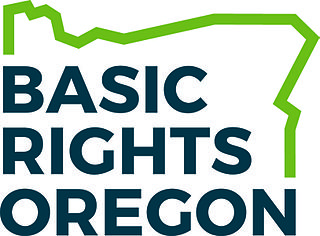
Basic Rights Oregon is an American nonprofit LGBT rights organization based in Portland, Oregon. It is the largest advocacy, education, and political organization working in Oregon to end discrimination based on sexual orientation and gender identity. Basic Rights Oregon has a full-time staff, a contract lobbyist, and more than 10,000 contributors, and 5,000 volunteers. It is a 501(c)(4) organization that maintains a 501(c)(3) education fund, a state candidate PAC and a ballot measure PAC. The organization is a member of the Equality Federation.

The rights of lesbian, gay, bisexual, transgender, and queer (LGBTQ) people in the U.S. state of Utah have significantly evolved in the 21st century. Protective laws have become increasingly enacted since 2014, despite the state's reputation as socially conservative and highly religious. Utah's anti-sodomy law was invalidated in 2003 by Lawrence v. Texas, and fully repealed by the state legislature in 2019. Same-sex marriage has been legal since the state's ban was ruled unconstitutional by federal courts in 2014. In addition, statewide anti-discrimination laws now cover sexual orientation and gender identity in employment and housing, and the use of conversion therapy on minors is prohibited. In spite of this, there are still a few differences between the treatment of LGBTQ people and the rest of the population, and the rights of transgender youth are restricted.

California Proposition 6, informally known as the Briggs Initiative, was an unsuccessful ballot initiative put to a referendum on the California state ballot in the November 7, 1978 election. It was sponsored by John Briggs, a conservative state legislator from Orange County. The failed initiative sought to ban gays and lesbians from working in California's public schools.
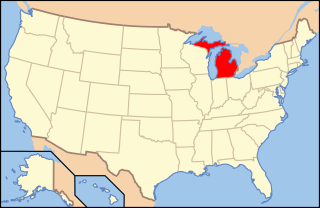
Lesbian, gay, bisexual, and transgender (LGBTQ) people in the U.S. state of Michigan enjoy the same rights as non-LGBTQ people. Michigan in June 2024 was ranked "the most welcoming U.S. state for LGBT individuals". Same-sex sexual activity is legal in Michigan under the U.S. Supreme Court case Lawrence v. Texas, although the state legislature has not repealed its sodomy law. Same-sex marriage was legalised in accordance with 2015's Obergefell v. Hodges decision. Discrimination on the basis of both sexual orientation and gender identity is unlawful since July 2022, was re-affirmed by the Michigan Supreme Court - under and by a 1976 statewide law, that explicitly bans discrimination "on the basis of sex". The Michigan Civil Rights Commission have also ensured that members of the LGBT community are not discriminated against and are protected in the eyes of the law since 2018 and also legally upheld by the Michigan Supreme Court in 2022. In March 2023, a bill passed the Michigan Legislature by a majority vote - to formally codify both "sexual orientation and gender identity" anti-discrimination protections embedded within Michigan legislation. Michigan Governor Gretchen Whitmer signed the bill on March 16, 2023. In 2024, Michigan repealed “the last ban on commercial surrogacy within the US” - for individuals and couples and reformed the parentage laws, that acknowledges same sex couples and their families with children.
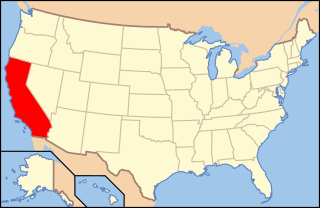
California is seen as one of the most liberal states in the U.S. in regard to lesbian, gay, bisexual, transgender, and queer (LGBTQ) rights, which have received nationwide recognition since the 1970s. Same-sex sexual activity has been legal in the state since 1976. Discrimination protections regarding sexual orientation and gender identity or expression were adopted statewide in 2003. Transgender people are also permitted to change their legal gender on official documents without any medical interventions, and mental health providers are prohibited from engaging in conversion therapy on minors.

Lesbian, gay, bisexual, transgender, and queer (LGBTQ) people in the U.S. state of Massachusetts enjoy the same rights as non-LGBTQ people. The U.S. state of Massachusetts is one of the most LGBT-supportive states in the country. In 2004, it became the first U.S. state to grant marriage licenses to same-sex couples after the decision in Goodridge v. Department of Public Health, and the sixth jurisdiction worldwide, after the Netherlands, Belgium, Ontario, British Columbia, and Quebec.
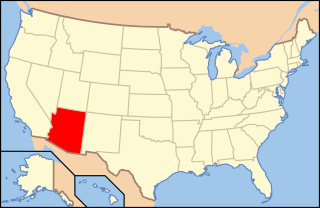
Lesbian, gay, bisexual, transgender, and queer (LGBTQ) people in the U.S. state of Arizona may face legal challenges not experienced by non-LGBTQ residents. Same-sex sexual activity is legal in Arizona, and same-sex couples are able to marry and adopt. Nevertheless, the state provides only limited protections against discrimination on the basis of sexual orientation and gender identity. Several cities, including Phoenix and Tucson, have enacted ordinances to protect LGBTQ people from unfair discrimination in employment, housing and public accommodations.
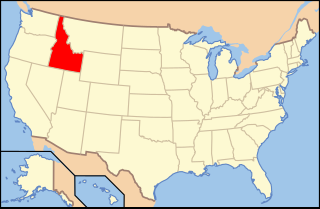
Lesbian, gay, bisexual transgender, and queer (LGBTQ) people in the U.S. state of Idaho face some legal challenges not experienced by non-LGBTQ people. Same-sex sexual activity is legal in Idaho, and same-sex marriage has been legal in the state since October 2014. State statutes do not address discrimination based on sexual orientation and gender identity; however, the U.S. Supreme Court's ruling in Bostock v. Clayton County established that employment discrimination against LGBTQ people is illegal under federal law. A number of cities and counties provide further protections, namely in housing and public accommodations. A 2019 Public Religion Research Institute opinion poll showed that 71% of Idahoans supported anti-discrimination legislation protecting LGBTQ people, and a 2016 survey by the same pollster found majority support for same-sex marriage.

Lesbian, gay, bisexual, transgender, and queer (LGBTQ) rights in the U.S. state of Alaska have evolved significantly over the years. Since 1980, same-sex sexual conduct has been allowed, and same-sex couples can marry since October 2014. The state offers few legal protections against discrimination on the basis of sexual orientation and gender identity, leaving LGBTQ people vulnerable to discrimination in housing and public accommodations; however, the U.S. Supreme Court's ruling in Bostock v. Clayton County established that employment discrimination against LGBTQ people is illegal under federal law. In addition, four Alaskan cities, Anchorage, Juneau, Sitka and Ketchikan, representing about 46% of the state population, have passed discrimination protections for housing and public accommodations.

Proposition 1 was a referendum in the Idaho in 1994, concerning gay rights and minority status. The purpose of Proposition 1 was to prevent homosexual people from receiving minority status in the state. The Idaho Citizens Alliance (ICA) petitioned for 2 years for enough signatures to put their initiative on the November 1994 ballot. Proposition 1 was defeated in the polls by a majority vote.

The Fairness Campaign is a Louisville, Kentucky-based lobbying and advocacy organization, focusing primarily on preventing discrimination on the basis of sexual orientation and gender identity. The Fairness Campaign is recognized by the IRS as a 501(c)(4) organization. The organization is a member of the Equality Federation.
Proposition 1 was a referendum held on November 3, 2015, on the anti-discrimination ordinance known as the Houston Equal Rights Ordinance (HERO). The ordinance was intended to improve anti-discrimination coverage based on sexual orientation and gender identity in Houston, specifically in areas such as housing and occupation where no anti-discrimination policy existed. Proposition 1 asked voters whether they approved HERO. Houston voters rejected Proposal 1 by a vote of 61% to 39%.

2020 Missouri Amendment 2, also known as the Medicaid Expansion Initiative, was a ballot measure to amend the Constitution of Missouri to expand Medicaid under the Affordable Care Act. The initiative was on the August 4, 2020, primary ballot and passed with 53.27% of the vote. Following previous successful Medicaid expansion initiatives in other states, Republican lawmakers in Nebraska and Utah added work requirements to their states' Medicaid expansions, which supporters aimed to prevent by proposing state constitutional amendments for future Medicaid expansion initiatives. Opponents sued to prevent the initiative from being voted on, but courts ruled in the measure's favor. The measure was supported most in urban areas and opposed in rural areas. After a delay due to a lack of funding from the Missouri General Assembly and resulting litigation, the initiative was implemented in October 2021, albeit slowly. Republican lawmakers attempted to roll back the program and add a work requirement through a state constitutional amendment, which failed after the United States Supreme Court effectively prevented the implementation of one.

2022 Missouri Constitutional Amendment 3, also known as the Marijuana Legalization Initiative, was a ballot measure to amend the Constitution of Missouri to legalize cannabis at the state level in Missouri. The measure was on the November 7, 2022, general ballot and was approved by voters with a margin of 53–47 percent.














